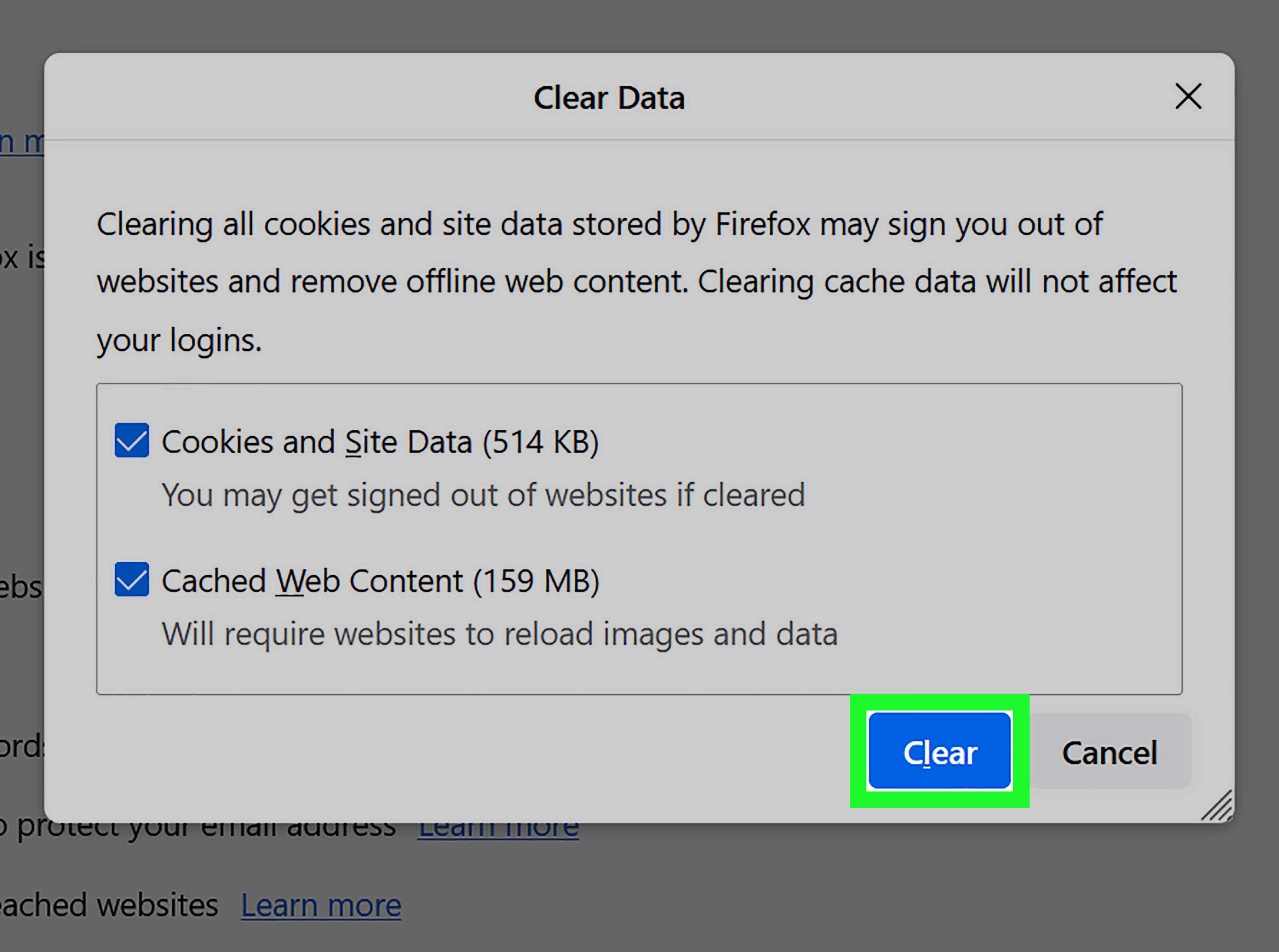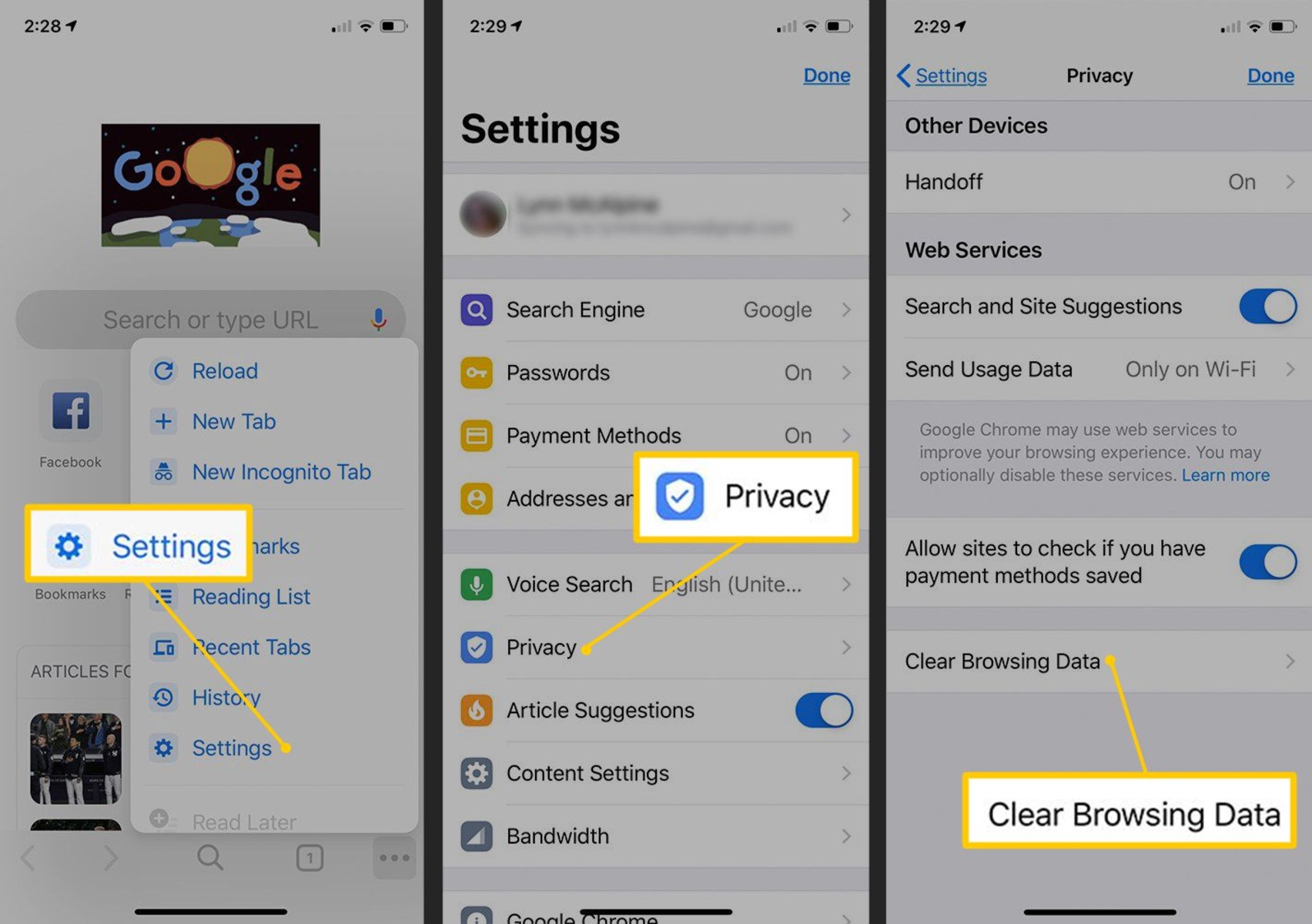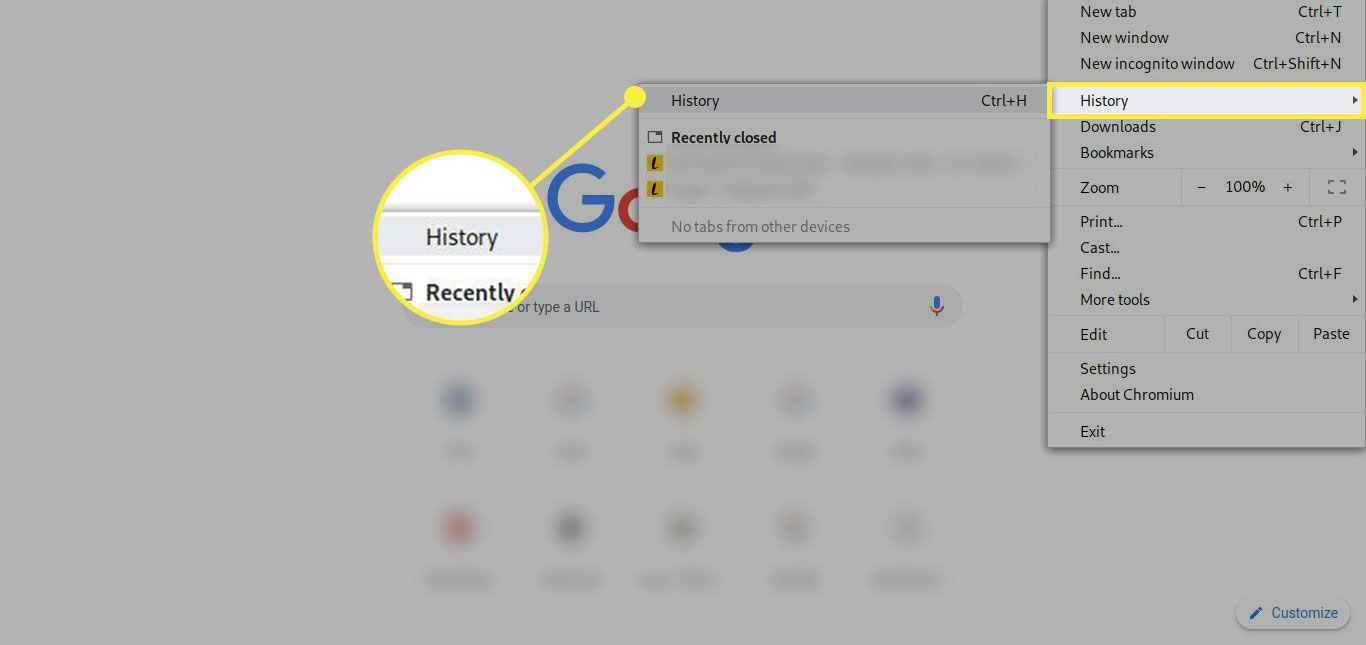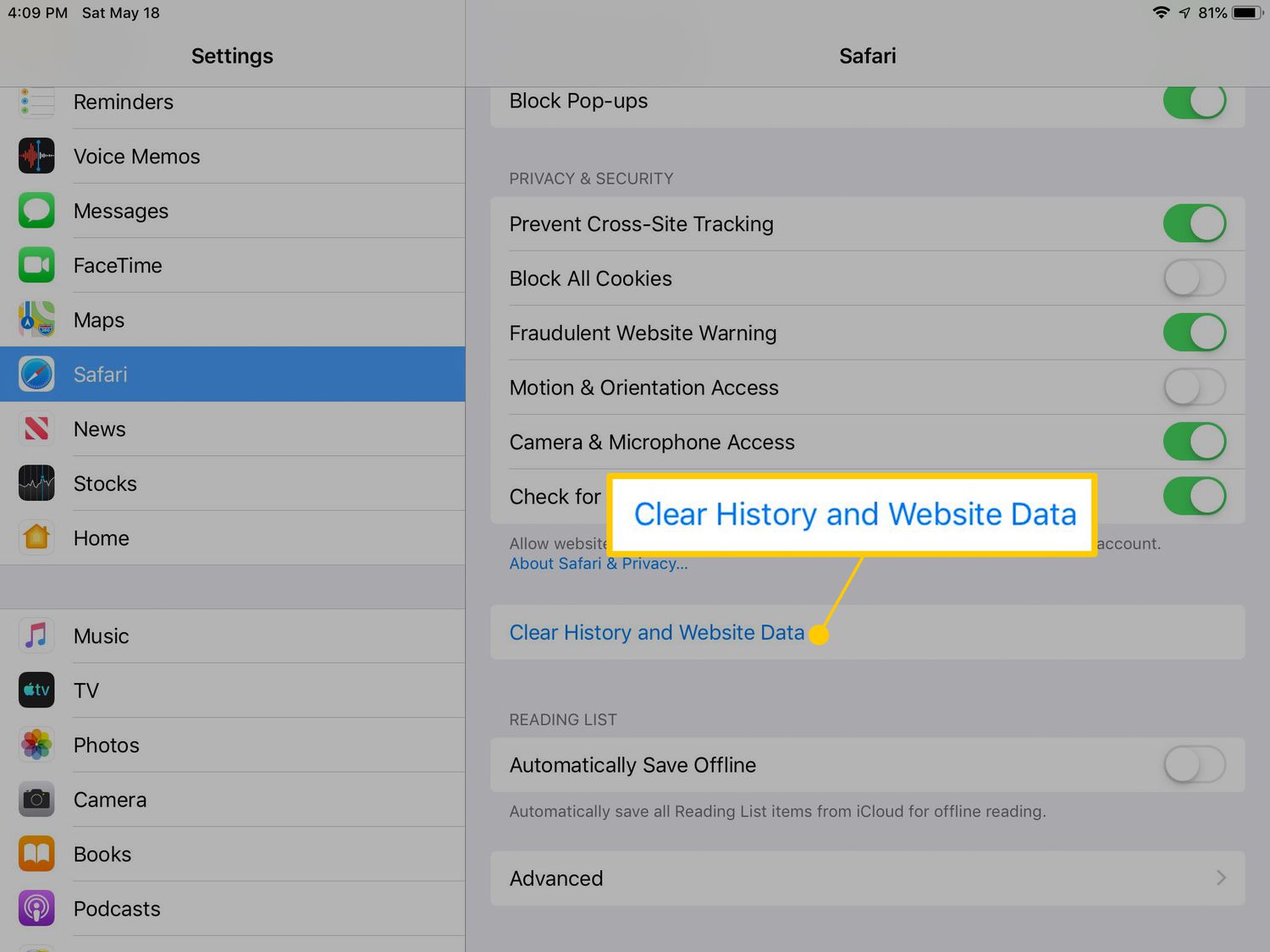Introduction
Welcome to the world of web browsers and cookies! As you navigate through websites, you may have come across the term “cookies” and wondered what they are and why they are important. In this article, we will explore the concept of cookies, their purpose, and why you might want to clear them from your browser.
When you visit a website, it often stores small pieces of data called cookies on your device. These cookies serve various purposes, such as remembering your login information, tracking your browsing behavior, and providing a personalized experience. They enable websites to remember your preferences and settings, making your online experience more convenient.
However, there may be situations where you want to clear cookies from your browser. This could be to protect your privacy, resolve website issues, or simply start afresh. Clearing cookies removes the stored data, allowing you to have a clean slate when browsing the web.
In the following sections, we will walk you through the steps to clear cookies on popular web browsers like Google Chrome, Mozilla Firefox, Safari, Microsoft Edge, and Internet Explorer. Whether you are using a desktop or mobile device, we have got you covered!
What are cookies?
Before we delve into the process of clearing cookies, let’s take a moment to understand what cookies actually are. In the context of web browsing, cookies are small text files that websites store on your device. These files contain information about your browsing activity, preferences, and interactions with the website.
When you visit a website, your browser sends a request to the server hosting that website. In response, the server sends back not only the requested web page but also a cookie that the website wants to store on your device. This cookie is then saved on your device’s hard drive or in its memory.
Cookies serve a variety of functions. They can be used to remember your login credentials, such as usernames and passwords, so that you don’t have to enter them every time you visit a particular website. Cookies can also remember your language preferences, site settings, and other personalized information, making your browsing experience more seamless and customized.
In addition to improving user experience, cookies are also used for tracking purposes. Website owners and advertisers can use cookies to gather information about your browsing behavior, such as the pages you visit and the links you click on. This data helps them analyze user trends, target advertisements, and tailor content to your interests.
It’s important to note that cookies are generally harmless and cannot execute programs or access your personal files. They are designed to be a convenient tool for both website owners and users, ensuring a smoother, more personalized browsing experience.
However, some users may have concerns about privacy and data security. Since cookies store information about your online activities, there is a potential risk of this information being accessed or used without your knowledge or consent. For this reason, clearing cookies from your browser can be a proactive step in protecting your privacy and maintaining control over your online data.
Why you might want to clear cookies
Clearing cookies from your browser can be advantageous in several situations. Here are some common reasons why you might want to clear your cookies:
1. Protecting your privacy: Cookies can track your browsing behavior and collect data about your online activities. If you are concerned about your privacy and want to prevent websites from accessing this information, clearing cookies can help ensure a clean slate and limit the data that can be collected about you.
2. Resolving website issues: Sometimes, websites may not load properly or display incorrect information due to corrupted or outdated cookies. Clearing cookies can help resolve these types of issues by removing any conflicting or erroneous data.
3. Starting fresh: Clearing cookies can be useful if you want to start fresh on a particular website. By removing stored cookies, you can reset your preferences and settings, allowing you to experience the website as if you were visiting it for the first time.
4. Avoiding targeted advertising: Cookies are often used by advertisers to track your online behavior and serve targeted ads. If you find personalized ads intrusive or want to avoid being targeted based on your browsing habits, clearing cookies can help minimize the impact of targeted advertising.
5. Switching user accounts: If you share your computer or device with multiple users, clearing cookies can be beneficial when switching between user accounts. This ensures that each user has a clean browsing environment without any overlap or confusion in saved preferences.
6. Troubleshooting browser-related issues: In some cases, browser-related issues such as slow performance or frequent crashes can be attributed to excessive or corrupted cookies. Clearing cookies can help alleviate these problems and improve the overall performance of your browser.
These are just a few examples of why you might want to clear cookies from your browser. Remember, clearing cookies is a personal choice and it’s important to weigh the benefits against any potential drawbacks. Additionally, keep in mind that clearing cookies will also sign you out of websites where you were previously logged in, so be prepared to enter your login credentials again when necessary.
How to clear cookies on Google Chrome:
If you’re using Google Chrome as your web browser, follow these steps to clear cookies:
- Open Google Chrome and click on the three-dot menu icon in the top right corner of the browser window.
- From the dropdown menu, select “Settings”.
- Scroll down and click on “Privacy and security” in the left sidebar.
- Under the “Privacy and security” section, click on “Clear browsing data”.
- A new window will appear. Select the checkbox next to “Cookies and other site data”.
- You can also choose to select other data, such as browsing history and cached images, if desired.
- Choose the time range for which you want to clear cookies. You can select from the last hour, the last 24 hours, the last 7 days, the last 4 weeks, or all time.
- Click on the “Clear data” button to remove the selected cookies.
After completing these steps, Google Chrome will clear the selected cookies from your browser. You may need to sign in again to websites where you were previously logged in.
It’s worth noting that clearing cookies will also delete your browsing history and other temporary data. If you only want to clear cookies and preserve other browsing data, you can use browser extensions or third-party tools specifically designed for that purpose.
Now that you know how to clear cookies on Google Chrome, you can take control of your browsing privacy and ensure a fresh start whenever needed.
How to clear cookies on Mozilla Firefox:
If you’re using Mozilla Firefox as your web browser, you can follow these simple steps to clear cookies:
- Open Mozilla Firefox and click on the three-bar menu icon in the top right corner of the browser window.
- From the dropdown menu, select “Options”.
- In the left sidebar, click on “Privacy & Security”.
- Scroll down to the “Cookies and Site Data” section.
- Click on the “Clear Data” button.
- A new window will appear. Ensure that the checkbox next to “Cookies and Site Data” is selected.
- You can also choose to select other data, such as cached web content, if desired.
- Click on the “Clear” button to remove the selected data.
After completing these steps, Mozilla Firefox will clear the selected cookies from your browser. Similar to other browsers, you may need to sign in again to websites where you were previously logged in.
If you want to have more control over cookie management, Firefox also offers options to manage cookie permissions for individual websites. To access this feature, go to the “Privacy & Security” section in Firefox Options and click on the “Manage Permissions” button under the “Cookies and Site Data” section.
By following these steps, you can easily clear cookies on Mozilla Firefox and have a fresh browsing experience whenever you desire.
How to clear cookies on Safari:
If you’re using Safari as your web browser on macOS or iOS, follow these steps to clear cookies:
- Open Safari and click on “Safari” in the top menu bar.
- From the dropdown menu, select “Preferences”.
- In the Preferences window, click on the “Privacy” tab.
- Click on the “Manage Website Data” button.
- A new window will appear, displaying a list of websites with stored data.
- Use the search bar to find specific websites or scroll through the list to locate the ones you want to remove cookies from.
- Select the websites you want to remove cookies from by clicking on them.
- Click on the “Remove” button to delete the selected cookies.
- Confirm your action by clicking “Remove Now” in the pop-up window.
After following these steps, Safari will remove the selected cookies from your browser. It’s important to note that clearing cookies in Safari will also delete other website data, such as cached files and browsing history.
If you want to clear cookies from all websites in Safari in one go, you can click on the “Remove All” button in the “Manage Website Data” window. However, this will remove all website data, not just cookies.
Keep in mind that clearing cookies will sign you out of websites where you were previously logged in, and you will need to sign in again if necessary.
Now you know the steps to clear cookies on Safari, allowing you to maintain your privacy and control your browsing data on macOS and iOS devices.
How to clear cookies on Microsoft Edge:
If you’re using Microsoft Edge as your web browser, you can easily clear cookies by following these steps:
- Open Microsoft Edge and click on the three-dot menu icon in the top right corner of the browser window.
- From the dropdown menu, select “Settings”.
- In the left sidebar, click on “Privacy, search, and services”.
- Scroll down to the “Clear browsing data” section.
- Click on the “Choose what to clear” button.
- A list of data types will appear. Ensure that the checkbox next to “Cookies and other site data” is selected.
- You can also choose to select other data types, such as browsing history and cached images, if desired.
- Click on the “Clear” button to remove the selected data types.
After completing these steps, Microsoft Edge will clear the selected cookies from your browser. You may need to sign in again to websites where you were previously logged in.
Microsoft Edge also offers the option to automatically clear cookies and other browsing data upon closing the browser. To enable this feature, go to the “Privacy, search, and services” section in Edge Settings, scroll down to the “Clear browsing data” section, and toggle on the option “Always clear this when I close the browser”.
By following these steps, you can easily manage and clear cookies on Microsoft Edge, ensuring a clean browsing experience whenever needed.
How to clear cookies on Internet Explorer:
If you’re using Internet Explorer as your web browser, here are the steps to clear cookies:
- Open Internet Explorer and click on the gear icon in the top right corner of the browser window.
- From the dropdown menu, select “Internet Options”.
- In the Internet Options window, go to the “General” tab.
- Under the “Browsing history” section, click on the “Delete” button.
- A new window will appear. Ensure that the checkbox next to “Cookies and website data” is selected.
- You can also choose to select other data types to clear, such as browsing history and temporary files.
- Click on the “Delete” button to remove the selected data.
After completing these steps, Internet Explorer will clear the selected cookies from your browser. Please note that clearing cookies will also remove other browsing data, such as browsing history, temporary files, and saved passwords.
If you want to have more control over cookie management in Internet Explorer, you can click on the “Settings” button under the “Browsing history” section in the Internet Options window. From there, you can manage your cookie settings, including accepting or blocking certain types of cookies.
Keep in mind that clearing cookies will sign you out of websites where you were previously logged in, and you will need to sign in again if necessary.
Now you know the steps to clear cookies on Internet Explorer. By clearing cookies, you can maintain your privacy and ensure a fresh browsing experience within the browser.
Conclusion
Clearing cookies from your web browser is a simple and effective way to maintain your privacy, resolve website issues, and start afresh with a clean browsing experience. Whether you are using Google Chrome, Mozilla Firefox, Safari, Microsoft Edge, or Internet Explorer, the steps to clear cookies are generally straightforward.
Cookies play an essential role in enhancing user experience by remembering preferences and providing personalized content. However, some individuals may have concerns about their privacy and the collection of personal data. Clearing cookies allows you to take control over your online privacy by removing stored information that websites may use to track your activities.
Remember that clearing cookies will sign you out of websites, so be prepared to sign in again if necessary. It’s also worth noting that clearing cookies may delete other temporary data, such as browsing history and cached images. If you want to retain specific browsing data while removing cookies, ensure you adjust your settings accordingly.
By following the step-by-step instructions provided in this article, you can easily clear cookies on popular web browsers. Whether you are protecting your privacy, troubleshooting website issues, or starting fresh, clearing cookies allows you to have a fresh browsing experience.
Keep in mind that periodically clearing cookies can be a good practice, but it’s essential to weigh the benefits against any inconvenience. Take some time to explore the cookie management options available in your browser to find a balance between privacy and convenience that suits your needs.
Now that you have a better understanding of how to clear cookies on different web browsers, you are empowered to take control of your browsing experience and protect your privacy.

























